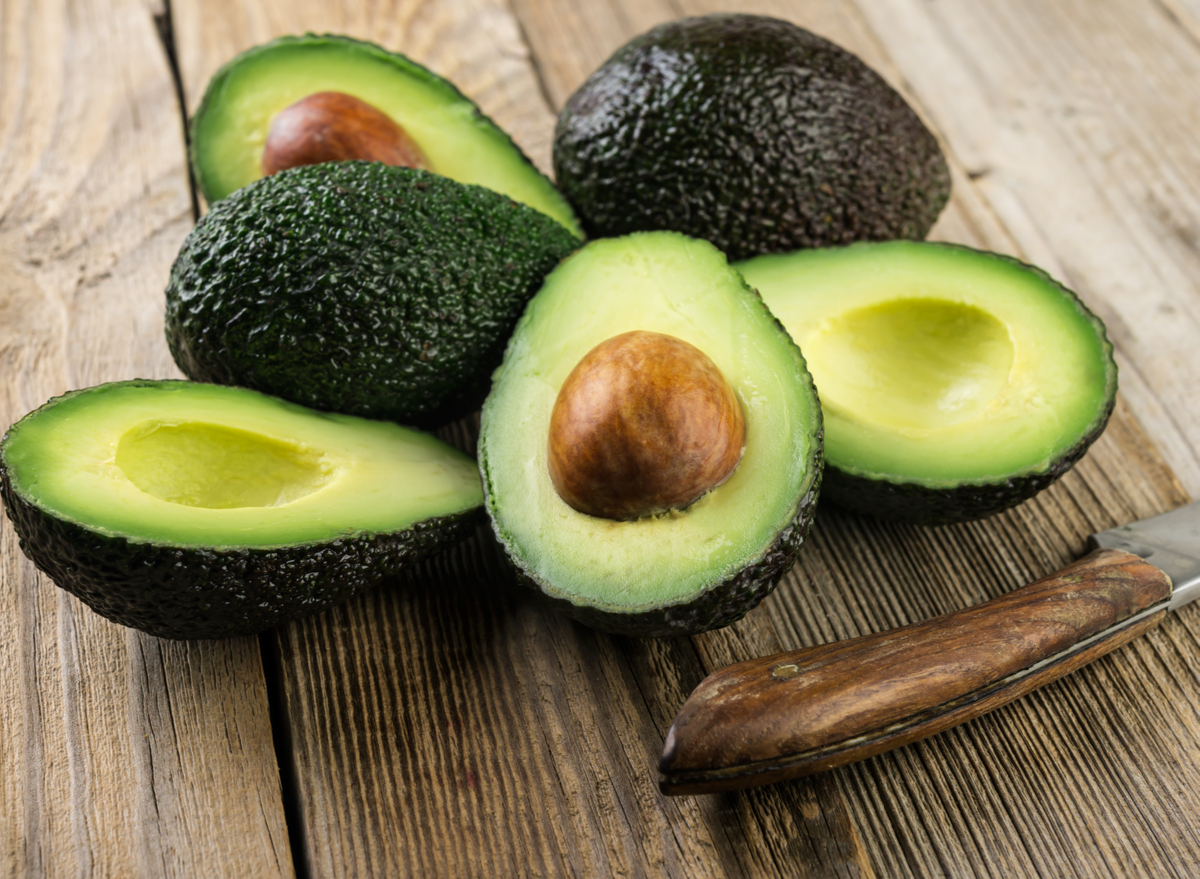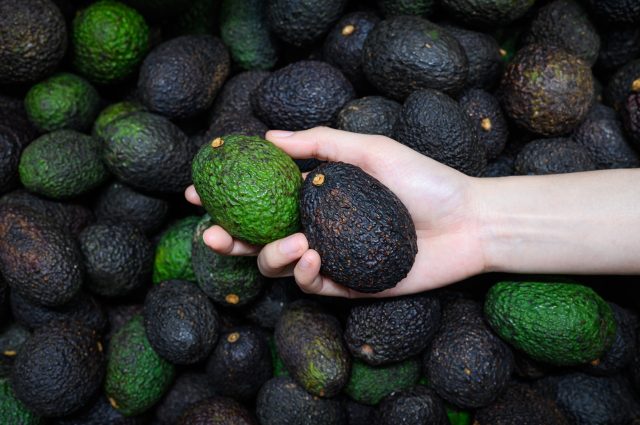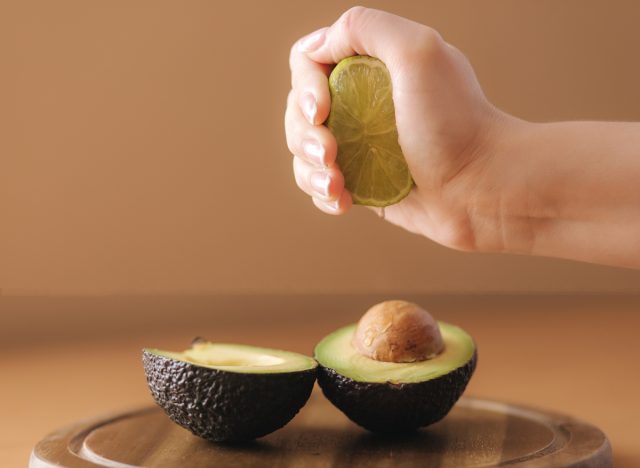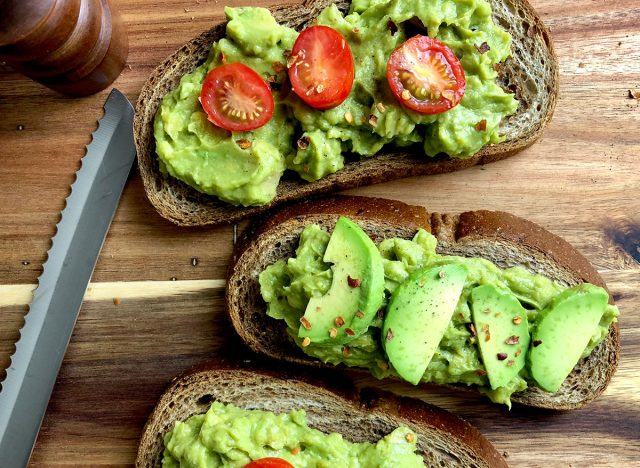How To Prevent Avocados From Going Bad Too Quickly, According to Chefs

Avocados have proven themselves to be a powerful, healthy food that everyone could benefit from adding to their diets. Research shows that avocados can support cardiovascular health, contribute to healthy weight loss and weight management, help with eye health, and can contribute to improved overall diet quality. Many of these miraculous health benefits associated with this fruit are due to the nutrients found in avocados, such as fiber, vitamin B6, folate, magnesium, and polyunsaturated fatty acids.
Aside from their nutritional perks, avocados are also an incredibly versatile fruit. You can eat them on their own, add them to smoothies, make dips with them, and include them in a variety of different style dishes. However, this beloved food does come with one main flaw: Avocados are also known for sometimes going bad too soon, before you have the chance to use them. Is there a way to keep avocados fresh for longer? How can we stop avocados from going bad too quickly?
To find out more ideas on how to best stop avocados from going bad prematurely, we thought it would be best to talk with a couple of expert chefs, asking them about some foolproof tips for buying and preserving this deliciously beneficial fruit. Thankfully, their advice for slowing down the ripening process of avocados is quick and easy, so anyone from experienced chefs to kitchen newbies can do it. Read on to learn more about how to stop avocados from going bad.
Choosing the right avocado in the store

Before we talk about preserving avocados for your next meal, let's make sure we are choosing the right ones at the store.
According to Nate Berg, a Culinary Institute of America-trained corporate chef for UNFI, the largest publicly traded wholesale food distributor in the U.S., you can usually tell if an avocado is ready by how it feels in your hand.
"When looking for a ripe avocado, gently squeeze the fruit using the palm of your hand, rather than your fingertips," Berg tells Eat This, Not That! "If ripe and ready to eat, the avocado will be firm but give slightly."
Another trick that you've most likely heard before is checking under the stem—the little brown bulb at the top. "If it's a bright green color, the avocado is ready to eat," says Berg. "But if a brown color shows, the avocado may be overripe."
You should also consider is when you intend to use your avocados when trying to select one in stores. For instance, if you need your avocado on the same day that you're shopping, then you'll want to use the tricks above to find one that is ripe and ready to go. But, what about those shopping trips made a few days before you're planning to use the avocado? In this case, you'll want to buy one that isn't quite ripe yet—which is when knowing how to preserve them and keep them from going bad too quickly will come in handy.
How to stop avocados from going bad too quickly

"If you need to extend their shelf life, individually wrap each avocado in plastic wrap, and store it in the refrigerator," says Chef Melanie Underwood of Gather Culinary. "Ideally, do this before the avocado is ripe—although either way, it will slow down the ripening process."
Often enough, people will come home and put their new avocados into a fruit bowl with other produce. However, you'll want to keep your avocados isolate and apart from other ethylene-producing produce, in particular.
"Avocados, apples, and bananas release ethylene gas as they ripen, and being enclosed or near each other will fasten the ripening process," explains Underwood.
Additionally, you can preserve your avocados in the freezer. This is an especially great tip if you intend on using them in smoothies or dips, because freezing your avocados can actually give them a uniquely creamy texture when blended.
"If they are ripe and you can't use them immediately, peel, mash, or puree the avocado and add one teaspoon of lemon or lime juice per avocado," says Underwood, "Then, place in an airtight container or cover with plastic wrap directly touching the surface of the avocado mixture."
After that's done, you can pop it in the freezer and save it for another day.
One other frustrating experience all avocado lovers can relate to is what sometimes happens when you cut open a fresh avocado, but don't intend to eat the whole thing in one sitting. You may notice that the unused half can sometimes turn brown almost immediately. Thankfully, Chef Berg has his own tips for preserving an avocado once it's been cut open.
"When cut avocados are exposed to the air, they react with the oxygen and start oxidizing, turning a light brown color," says Berg. "You can squeeze lemon or lime juice on the exposed surface, because the citric acid works as a preservative. Another easy tip is to wrap the cut avocado in plastic wrap or place it flat down in a container, which prevents the avocado from reacting with oxygen in the air."
Final takeaways

You can determine whether an avocado is ripe or still needs more time by investigating it's texture and stem at the grocery or at home. When you bring your avocados home, if you don't have plans to eat them right away, be mindful of where you store them. Do what you can to give it some distance from your apples, bananas, ethylene-producing produce to slow down the ripening process.
If your avocado is already cut open and you wish to conserve the remainder, consider squirting a little lemon or lime juice on top, individually wrapping it up in saran wrap, and putting it in the fridge. You can also cut it up and keep it in your freezer, to enjoy some thick and creamy smoothies or dips down the line.
Hopefully, these chef-recommended tips can help you feel more confident about your avocado storage, mitigating food waste while saving you a little money in the future.
- Source: https://www.ncbi.nlm.nih.gov/pmc/articles/PMC3664913/
- Source: https://www.ncbi.nlm.nih.gov/pmc/articles/PMC6471050/
- Source: https://www.mdpi.com/2072-6643/9/9/919
- Source: https://nutritionj.biomedcentral.com/articles/10.1186/1475-2891-12-1
- Source: https://fdc.nal.usda.gov/fdc-app.html#/food-details/171705/nutrients









